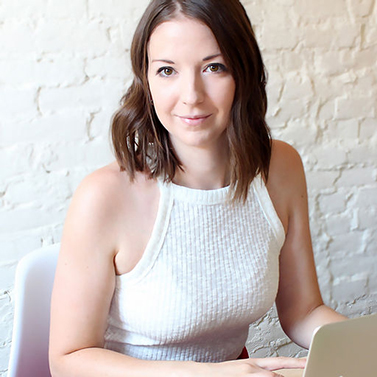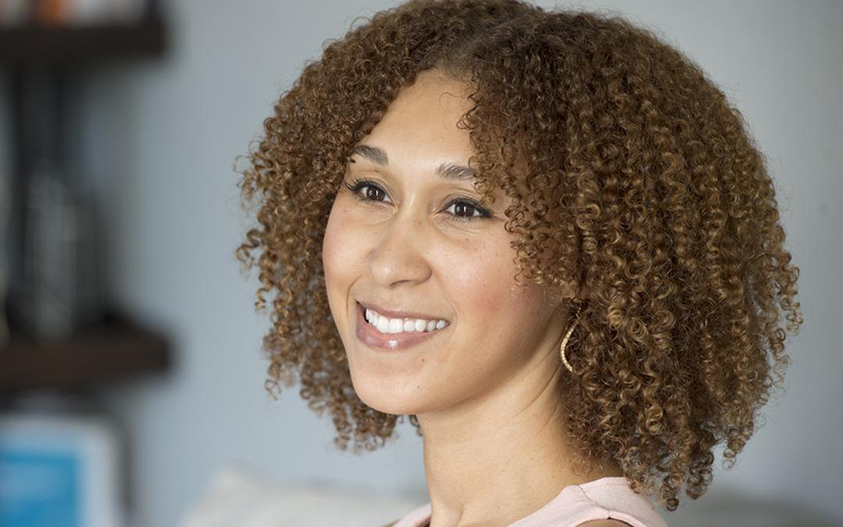One of the perks of freelancing is that you don’t have to answer to a boss—other than yourself. The challenge is to make sure that if you’re your own boss, you’re a great one! That may mean that you don’t overload your schedule, take unfulfilling jobs, or stand for low pay that doesn’t match your skill set. To make this happen, you might need to turn down some clients—even if it means missing out on income opportunities. As our crowd-sourced panel can attest to, some freelance jobs just aren’t worth it. The trick is being able to detect and avoid those jobs.

Cristy Brusoe
Cristy Brusoe is the Founder of Brusoe Communications, specializing in public relations strategy and media relations services.
Table of Contents
Out of my normal hours or scope of work
I have turned down clients in the past if they ask me to work past normal “work” hours. For example, I recently had a client ask me to join meetings at 7, 8, and even 9 pm. While I understand time zones can be an issue, if a client is asking me to regularly join meetings past my work hours, I usually turn them away respectfully.
I have turned down clients for asking for things I don't normally provide clients. For example, I recently had a client ask me to create a media list for them that they then were able to own and use however they saw fit. That is not normal practice in my industry, and thus I had to pass on working with them. There are businesses out there who want a cheap way to get the resources they need, without investing in a long-term relationship with you.
This leads to my next reason for turning down a client… if a client wants to continually work on an hourly or project basis. I don't mind working on a project or hourly basis for a new client, to begin with, and build trust. However, if a client wants to continue with that format, they aren't working towards creating a long-term relationship with you as a freelancer. You'll end up putting in way more time/effort than you're getting paid for.
They are looking for a different style
The most common reason I turn down clients is if I feel they are looking for a different art direction than what I'm comfortable working in. Taking on such projects often results in a lot of back and forth after I deliver the first draft. Furthermore, this type of client rarely ends up becoming a regular, who is ultimately the best type of client.
Regulars know precisely the type of work I can provide and have already proved to be happy with it. Likewise, I know what they like and gradually become more efficient at producing for them. So when new clients show up looking for an entirely different artistic style, I'll often end up politely declining and wishing them the best.

Calvin West
Calvin West recorded his first album in Sweden when he was 19 and has been in the music business since. Find him at Calvinwest.com

Jessica Woods
Jessica Woods is the founder and editor of chickenandyou.com, a blog that promotes homesteading, self-sufficiency, and (you guessed it) chicken keeping.
It isn't the right fit
Yes, I know it's cliche, but there come times where a project just isn't the right fit for me. I've worked as a freelance copywriter for just over a decade and, while there are months where any money seems like good money, I've learned to nurture my quality of life and the enjoyment of my work over my bank account.
It's a great idea to ask your prospective clients just as many questions as they inevitably ask you. Find out whether your prospect's brand, message, and perhaps most importantly, their values align with yours.
Burnout is a pretty hot topic right now, though it's nothing new – it's been around for a very long time and I guarantee that being mindful of how well your prospect fits you will work to fight burnout better than any other solution you've found!
Misaligned budget or mission
I turn down clients when I get a sense that expectations and budgets do not line up. In this case, I ask the client to lay out all the deliverables and break down my rates for them. If there is room to adjust either budget or deliverables, I might reconsider, but often it becomes clear at that point that it's not a perfect collaboration.
I also say no when I do not feel aligned with a client's mission or vision. Recently, I've had to say no to a few commissions I would've liked to tackle due to demand and being booked for some months in advance. Of course, this is the best-case scenario, but it can be tricky to determine what projects might be worth somehow squeezing in any way. I will often say no when someone is in a huge rush because I book clients well in advance.

Natalie Girsberger
Swiss Brooklyn-based artist Nat Girsberger creates visual art interpreting the unseen. From her Brooklyn Studio, she creates for clients such as Universal Music Group, Google, and Michaels.

Michelle Zaporojets
Michelle Zaporojets is the founder of Social Studio Co, a small company that helps Social Media Managers launch and scale their freelance social media management careers.
You don’t have to take every client that comes your way
As a freelancer of 8 years, I’ve definitely had to turn down a number of clients over the years. Before signing a client, you have to understand who your ideal client is – are they based in a country or time zone that works with your schedule and location? Can they afford your pricing? Are they a small 2-person business or a 100-person company?
I’ve mostly turned down potential clients who try to negotiate my pricing – and not because they’re negotiating, but because these clients are typically the ones who end up being the most difficult—the ones who bargain the most, and the ones who are messaging you at 8pm on the weekend. Of course, this isn’t always the case, but as a freelancer, you have to be able to recognize certain behaviors in your less-than-ideal potential clients.
As you get more experience as a freelancer, you tend to realize that you don’t have to take every client that comes your way.
I've given up on wild expectations
Early in my freelance career I would take on clients with wildly inappropriate expectations and do my best to achieve as close to that as possible. I'd stress, work 14-hour days, and overcommit myself to goals that weren't valuable to their business and all about ego.
Today, I have red flag responses that stop me in my tracks and cause me to let them know I can't work with them. Red flags for me include statements like “I might text at night if I have an idea,” or “Can you get me in Forbes, Entrepreneur, and on Ellen on a $500 budget?” Both are very real statements from prospects with very real businesses.
As an established business owner, I am more conscious of my own time, personal boundaries, and the stress of taking on individuals that are seeking ego-driven outcomes.

Krystal Covington
Krystal Covington, Marketing Consultant at Go Lead Consulting.

Dr. Bryan Quoc Le
Dr. Bryan Quoc Le is a food scientist, food industry consultant, and author of 150 Food Science Questions Answered. He's on a mission to help startups, brands, and companies in the food industry create a cleaner, healthier, and more sustainable world. Get in touch with him at Bryanquocle.com.
I avoid high-complexity projects that aren’t commensurate with pay
I typically turn down clients if I sense that there will be more complexity involved with the project relative to the amount the client is willing to pay. While sometimes this can be difficult to gauge, I am learning more about what I can and cannot or am not willing to do. Being able to estimate the time sink of different tasks and project milestones is the key to creating that time versus value relationship.
I also turn down clients if I suspect that I can't deliver enough value to them, whether that's because the project is outside my current skill set, the project requires more than one person to [complete], or the client and I have differences of opinion on how the project should be completed. I try to get a sense of whether or not the client is communicative – projects are very challenging to complete if there isn't ongoing communication, and so I don't take on clients who seem distracted, disinterested, or less involved in the progress of the project.
The work doesn’t advance my career
Recently I turned down projects from a client because the work was too similar to what I do at my day job. Unless the money is too good to refuse, I don’t like to waste time on work that creates redundancy on my resume.
Pay is too low
I sometimes reject projects because the pay is too low. In one instance, I was offered a freelance copy editing gig, but after trying it out for a month I realized I was earning well below minimum wage based on the time I was spending on it. I quickly cut that client loose.
Deadlines are too tight
I often have to tell someone that the deadline they proposed for a new project isn’t going to work for me. Sometimes clients are willing to give me more time, but when they don’t budge on the due date, I decline the project.

Aaron Case
Aaron Case, a Career Counselor and Resume Writer at Resume Genius.

Sharon van Donkelaar
Sharon van Donkelaar, CMO at Expandi.
Payment:
Sadly, there are still some people who think freelancers should earn less than a “formal” worker. Especially when I was starting, I received so many proposals offering full-time jobs with a payment that was less than minimum wage, and when I told them my prices they just left the chat! I remember seeing clients who were seeking freelancers abroad in Latin America and Asia because they could pay them way less than American and European freelancers.
The client is asking one freelancer to do the job of 3 people:
This is something quite specific, but it has happened so many times I now spot them immediately. There is this type of client who wants a freelancer to do everything. For example, they will ask for a social media manager to run their SM account and create content, and take pictures, and offer customer service, and do graphic design, and a long etcetera. Usually, they also offer terrible payment and tend to be extra bossy. Runaway from those!
Doesn’t fit my skill set
There's no better feeling than the one you get when you realize your freelancing career is taking off and clients are starting to knock on your door nonstop; however, that increases the chance of you having to turn down an offer. [This] is never easy to do, no matter the reason why you're saying no.
The most common and ‘easy' way out of this situation is saying you have a tight schedule; nevertheless, I like being completely honest and professional when it comes to handling clients, so I tell them the truth about why I'm turning down their paid offer. One of the reasons I regularly have to turn down an offer is because their request doesn't fit my skill area.
There's a general misconception about freelancers being capable of doing pretty much everything the clients put on the table, and that couldn't be any more wrong. When I get an offer I don't believe fits my skill set, I feel obliged to turn it down, but I make sure I can at least provide them with an alternative like referring another freelancer.

Nikolina Jeric
Nikolina Jeric is a writer, poet and founder of 2Date4Love, where she writes professionally about love and relationships.

Christopher Liew
Christopher Liew is the Founder of Wealthawesome.com, where he shares tips on money, travel, career, and business. He’s a CFA Charterholder with over 11 years of corporate experience. Read about how he quit his six-figure salary job to travel the world.
Saying no is sometimes necessary
Considering that paychecks are not automatic when you’re a freelancer, it may be strange to talk about turning down potential freelance work. However, believe it or not, there will come a day when saying no will become one of the best decisions you will ever make.
As much as I’d love to take on every project that comes my way, I sometimes turn down a client when I’ve already got prior work commitments. While it’s tempting to always accept new work opportunities, adding new projects to my plate when I no longer have the time or energy to spare would only lower the quality of my work. Hence, as much as possible, I make it a point to simply focus on delivering my best work to my existing clients.
I also tend to refuse a freelance job when a client insists on quantity instead of quality. Not only do I disagree with this approach, but I also find little value—and absolutely no pleasure—in working for these kinds of clients.
There is a reason why I started freelancing in the first place, and that is to find freedom and meaningfulness in my career. While saying no isn’t easy, and rejection isn’t fun, I knew that taking on every project that came my way would only come to bite me in the ass someday.
This is a crowdsourced article. Contributors are not necessarily affiliated with this website and their statements do not necessarily reflect the opinion of this website, other people, businesses, or other contributors.

0 Comments